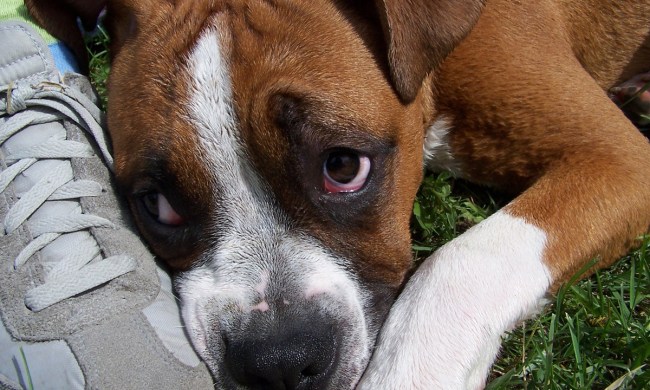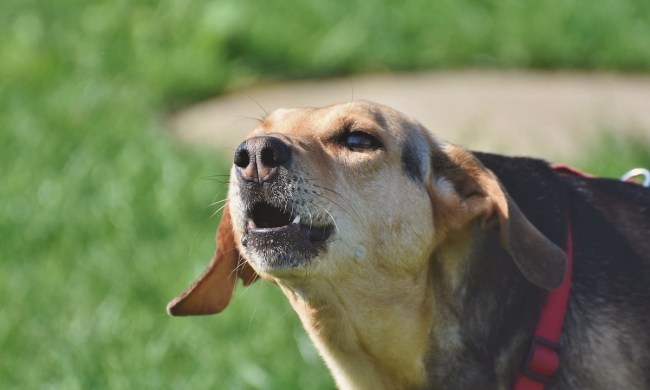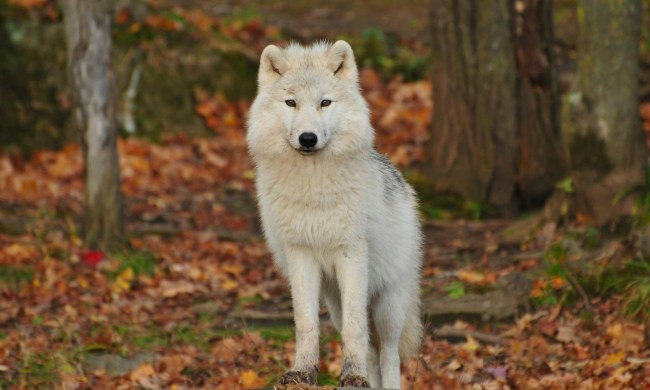As a loving dog owner who’s dedicated to their pet’s health and happiness, it can be worrying to notice that your pooch’s nose has changed colors. This kind of transition can happen so slowly that you don’t notice until your pup’s wet nose is nearly all pink, and that can be startling. But you can rest assured, dog’s noses normally change color for a few different reasons — some rarer than others — and they are almost always nothing to think twice about.
Before you anxiously dial up the vet, consider if you’ve noticed any other changes in your dog while you read up on the four common reasons for this. You might be able to solve the mystery yourself when asking the question, “Why did my dog’s nose change color?”
Why do dogs’ noses change colors?

There are many normal reasons why dogs’ noses change colors, usually from black to pink (or even brown) or vice versa. If you’re noticing this gradual change with no other new symptoms, your dog is likely dealing with one of the following conditions.
Snow nose is a regular cause of color-changing snouts
Most dogs that experience color changes on their snout will see this happen as the seasons change. In the winter, your dog’s dark-colored nose may turn brown or pink — and this is normal. This may happen quickly or over the span of several months, so don’t worry if you notice your furry friend with splotchy colors as temperatures dip or rise.
Although the condition is technically known as “hyperpigmentation” in the veterinary world, this is commonly called “winter nose” or “snow nose” because of the time of year it occurs. However, this phenomenon can occur at any time of year and in any kind of weather. Veterinary dermatologist Dr. Sandra Koch told PetMD, “We’re not sure what causes it, but since it occurs most often in winter or cold weather climates, we think it might have something to do with the temperature or possibly certain enzymes.”
A dog with a naturally black nose might see their nose turn pink, while dogs with brown noses will turn a lighter shade of brown. If your pup’s nose turns white or red, however, you may be dealing with a different condition.
Hyperpigmentation can cause a dog’s nose or skin to change color
While snow nose causes a dog’s nose to lighten in color, hyperpigmentation can do the opposite, causing your dog’s nose to darken. Although hyperpigmentation can happen on the nose due to a number of skin conditions, it’s more often seen on a dog’s back, legs, or groin. It can be the result of a breed-specific condition that develops early in life, or it can be a secondary symptom of another problem in the body.
When experiencing hyperpigmentation, a dog’s skin or nose will become dark, rough, thick, and even velvety. When this occurs on the nose of an adult dog, you may also notice:
- Redness or irritation
- Crusting
- Oozing
- Bumps or lesions on the nose
However, this is where it gets tricky. Many conditions, from bacterial infections to poison ivy, can cause nose hyperpigmentation, so you might need to consult your vet to pinpoint the cause and the best treatment for the issue.
Vitiligo is a harmless and painless condition that causes skin to lose color
This benevolent condition causes patches of depigmentation in the skin, resulting in melanin loss in those areas. Melanin is what gives skin and fur its color, so without it, your dog’s skin can lighten by varying degrees – -even on their nose. Humans can also develop vitiligo, and it appears in roughly the same way, and you’ll be glad to know that this condition causes no discomfort or related health concerns.
Sometimes, vitiligo is caused by environmental conditions like stress or exposure to toxins. It can be a secondary symptom of some neurological and autoimmune diseases like lupus, though these cases are less likely to affect only your dog’s nose. Vitiligo is also thought to be hereditary, and some breeds are more likely to develop it. When they do, it will begin early in life and continue developing into adulthood.
Some dogs even have long-term reactions to plastic dog bowls
Although most dogs will not experience any side effects from using plastic food and water bowls, but some may be more sensitive to certain materials in the bowl. Over time, these dogs may lose pigment in their nose and mouth. There’s little research on whether this is connected to allergic reactions or contact dermatitis, but you may notice other kinds of irritation on your dog’s snout if this is the case.
Dog breeds most likely to experience snow nose

For reasons unknown, some dog breeds are more likely to experience snow nose. This includes Siberian huskies, Bernese mountain dogs, Labrador retrievers, and golden retrievers. Even so, any dog can experience a snout color change as winter approaches — even many small dogs.
When to worry about a dog’s nose changing colors

Many dog owners breathe a sigh of relief when they learn that snow nose and other related conditions are harmless. Still, it’s good to keep an eye on your fur baby if anything else seems amiss, like a refusal to eat or obvious irritation on the nose. Some changes to your dog’s snout will be sudden and obvious, like an injury or bee sting, but you can still visit the veterinarian if you’re worried about a more gradual change. But if your dog is acting unusual, please don’t wait to ask a professional! Making sure your buddy is healthy is always the first priority, but having peace of mind can be the cherry on top.
Now that you know what you know, you can take the best approach to addressing your dog’s color-changing nose. Most cases of nose discoloration are nothing to worry about, but it’s only natural to be concerned when you notice something new. Now, you can take a deep breath!




